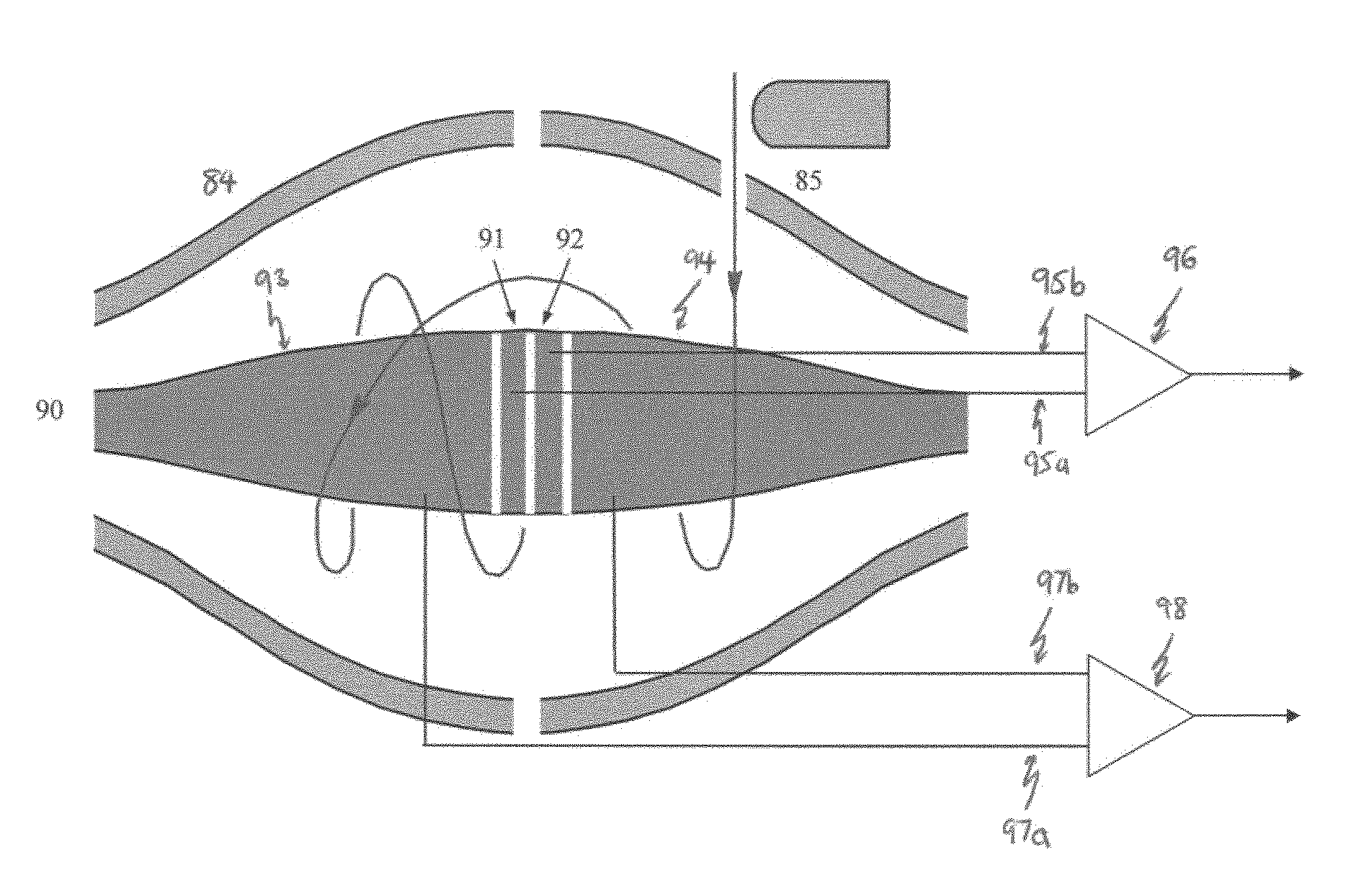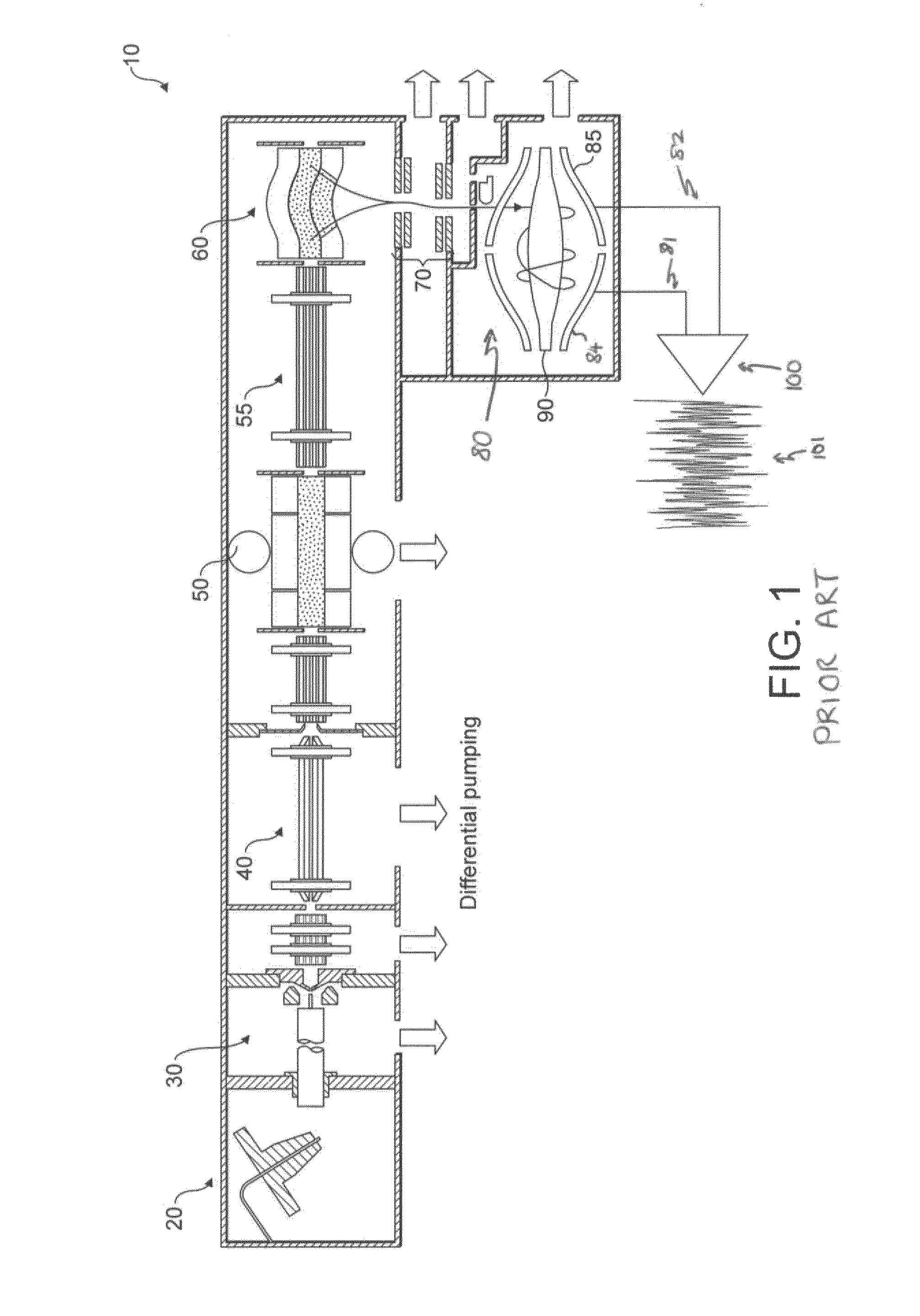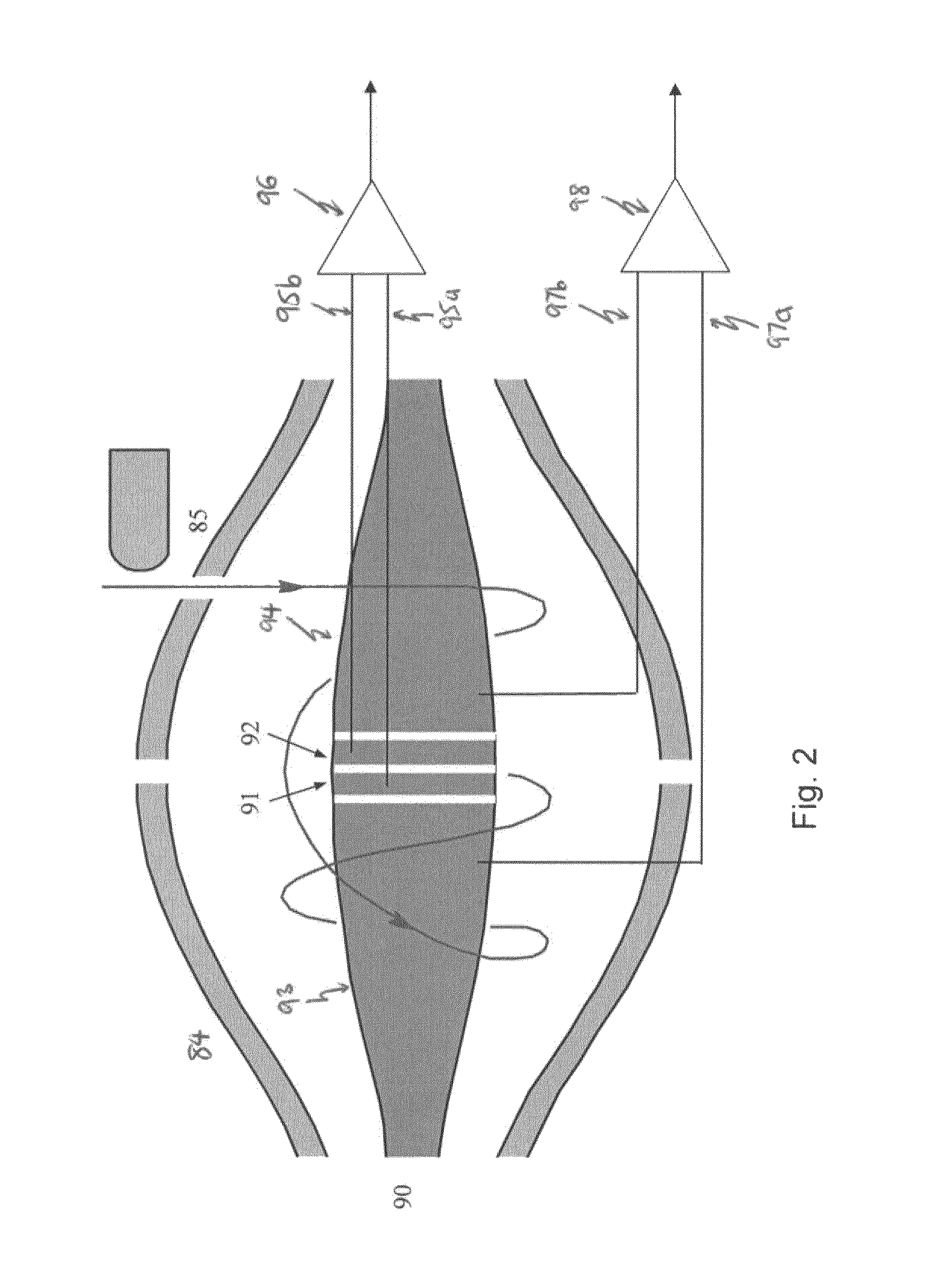Ion detection
a mass analyzer and ion detection technology, applied in the field of mass analyzers, can solve the problems of limited m/z analysis in ftms, limited analytical performance, and inability to become widespread, and achieve the effects of improving the identification of mass spectra peaks, improving the mass spectrum, and increasing the speed
- Summary
- Abstract
- Description
- Claims
- Application Information
AI Technical Summary
Benefits of technology
Problems solved by technology
Method used
Image
Examples
first embodiment
[0053]Referring next to FIG. 2, an electrostatic trap according to the present invention is shown. Where the same components to those identified in FIG. 1 are shown, identical reference numerals are used.
[0054]Central electrode 90 is formed in such a way that a first detection strip electrode 91 and a second detection strip electrode 92 are near the centre of the electrode. A first side electrode 93 and a second side electrode 94 are also formed in this way. The first strip electrode 91 and the second strip electrode 92 are near the centre of the central electrode 90 (z=0), such that they are closest to the beam. The beam has a cylindrical envelope as in existing instruments.
[0055]After ions are injected through the injection slot of the electrostatic trap analyser and brought closer to the central electrode 90 by ramping the voltage between centre electrode 90 and outer electrodes 84 and 85, the ions move on a stable circular spiral trajectories at a desired radius. If the central ...
second embodiment
[0082]Referring now to FIG. 6, an electrostatic trap according to the present invention is shown. This embodiment functions according to similar principles as the embodiment shown in FIG. 2. However in this case, pulse detection is performed with the help of secondary electron detection. A conversion electrode 140 is mounted on the central electrode 90 and a grid electrode 150, dynode 160 and microchannel plates 170 are also provided.
[0083]Firstly, conventional image current detection is performed with ions moving at a considerable distance from a conversion electrode 100. In this way, the harmonic transient image current is obtained. Subsequently, the voltage on the central electrode 90 is ramped slightly so that ions start to move on trajectories that intersect with the conversion electrode 140. This electrode has a different voltage to that applied to the central electrode 90, so that the equipotentials within the electrostatic trap 80 are not perturbed.
[0084]On each pass, a port...
PUM
 Login to View More
Login to View More Abstract
Description
Claims
Application Information
 Login to View More
Login to View More - R&D
- Intellectual Property
- Life Sciences
- Materials
- Tech Scout
- Unparalleled Data Quality
- Higher Quality Content
- 60% Fewer Hallucinations
Browse by: Latest US Patents, China's latest patents, Technical Efficacy Thesaurus, Application Domain, Technology Topic, Popular Technical Reports.
© 2025 PatSnap. All rights reserved.Legal|Privacy policy|Modern Slavery Act Transparency Statement|Sitemap|About US| Contact US: help@patsnap.com



